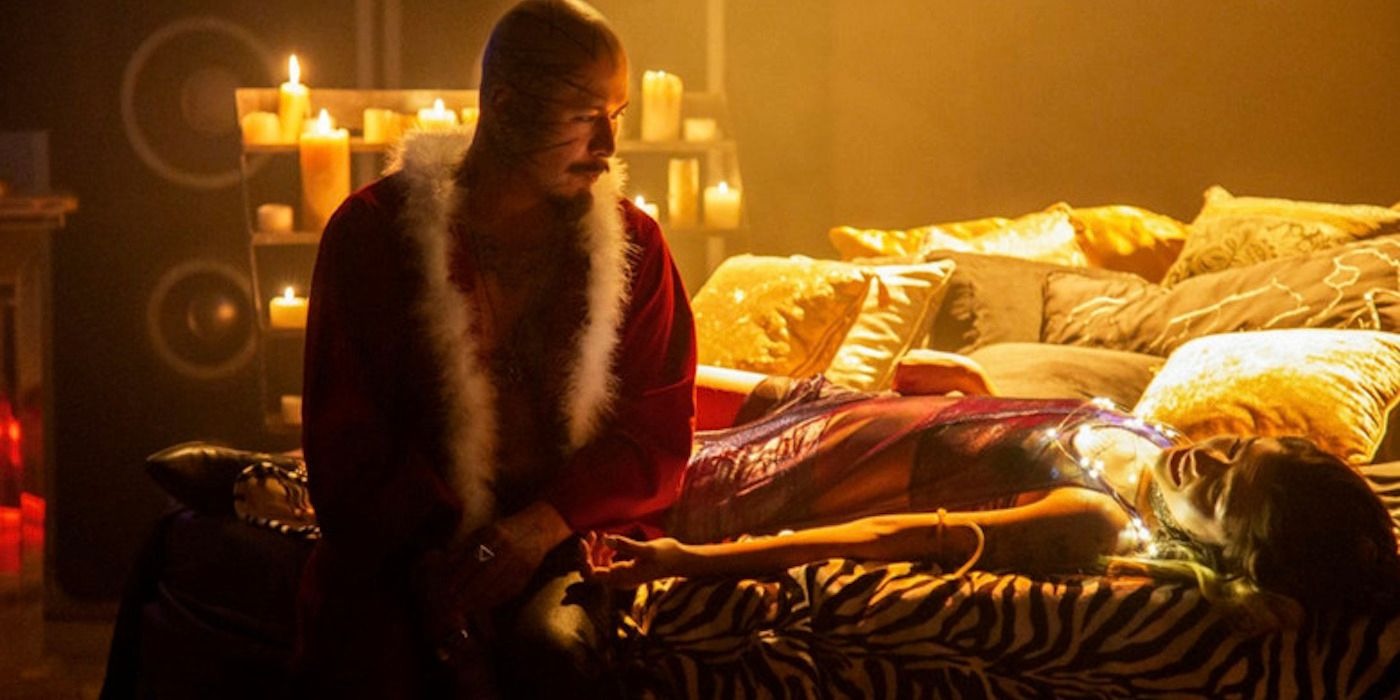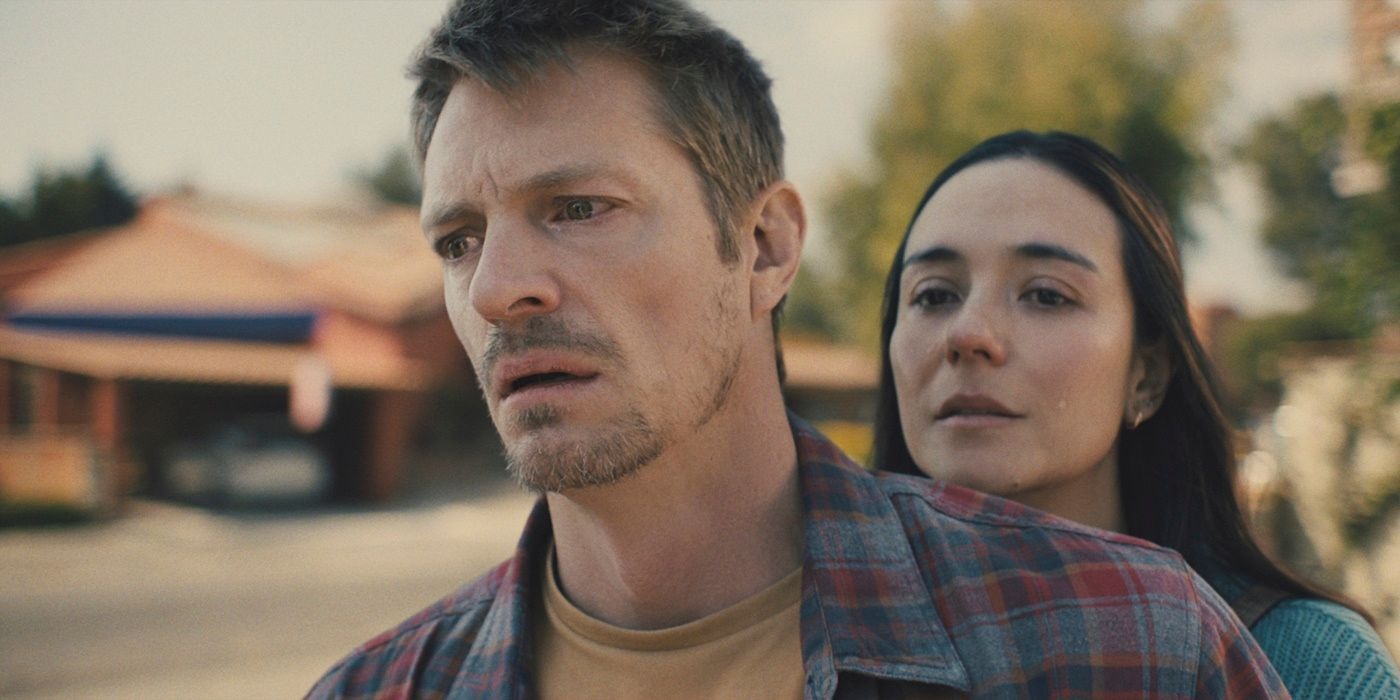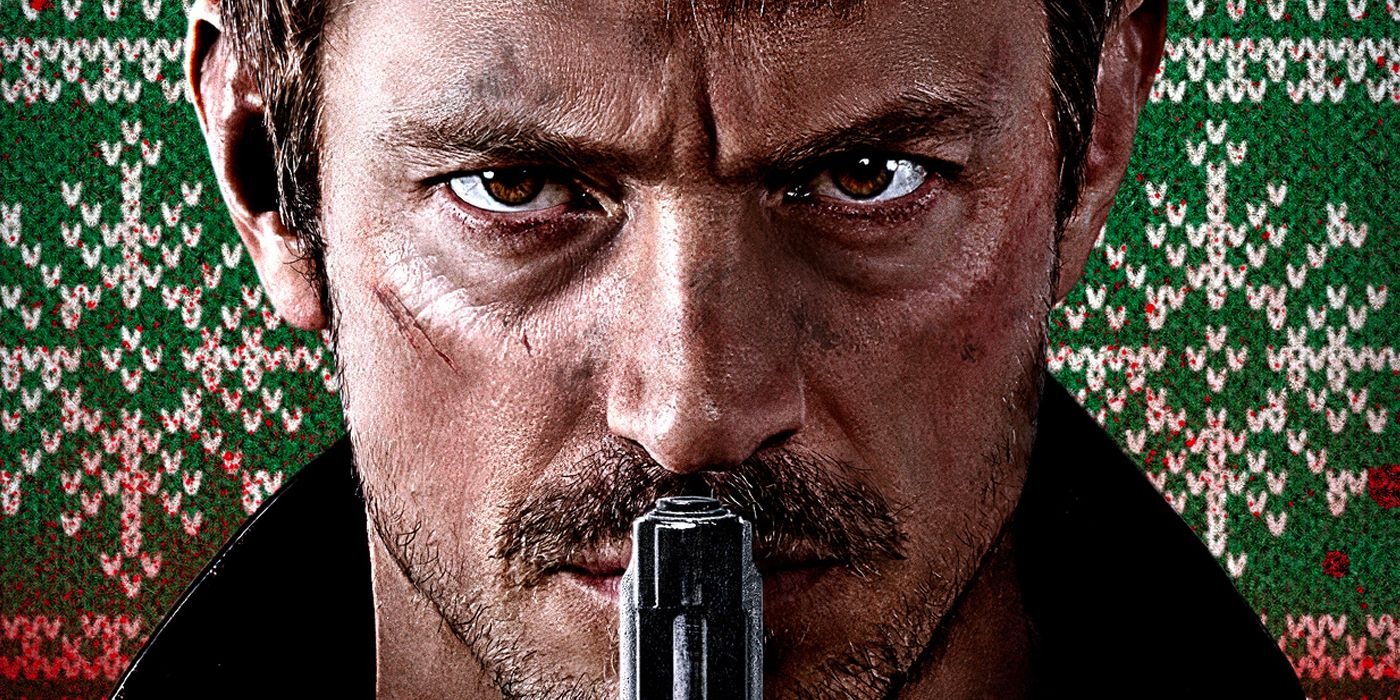John Woo has cemented his reputation as one of the finest action directors, gaining prominence in Asia before transitioning to Hollywood. His impact on the genre became even more pronounced in North America, where he left an indelible mark on the 1990s through films such as Broken Arrow, Mission: Impossible 2, and Face/Off.
His work also played a role in boosting the careers of stars like Nicolas Cage and John Travolta. Now, two decades since his last project in North America, Woo makes a return with Silent Night.

The film paints a tragic revenge story, centered on a grieving father determined to avenge his son, who was caught in the middle of a gang war. The journey ahead is one of relentless obsession and vengeance, culminating in an ending that underscores how unchecked rage can devour a person.
Silent Night Gives Brian a Surprise Partner
Joel Kinnaman steps into the role of Brian, a man whose life is shattered when rival gangs engage in a shootout, leading to the unintended death of his son.
With no justice served by law enforcement, Brian dedicates a year to strategizing, training, and tracking down those responsible, ensuring that their fate is sealed before Christmas arrives. His transformation into a vigilante mirrors Marvel’s Frank Castle, as he eliminates criminals beyond just the ones linked to his son’s murder.
Eventually, he dismantles most of the gang factions, setting his sights on their leader, Playa. Underestimating Brian, Playa initially appears to have the upper hand. However, by the time the final confrontation is revealed, Brian has already been worn down by injuries sustained over weeks of fighting.
Fortunately, Vassel, the lone detective on the case who isn’t corrupt or indifferent, arrives just in time to help. The two men take on Playa’s remaining enforcers, but the battle leaves them both gravely wounded, especially after dealing with Playa’s heavily armed girlfriend.
Believing himself victorious, Playa prepares to finish Brian off. However, Vassel catches him off guard, delivering a critical shot. Seizing the moment, Brian strangles Playa to death, bringing an end to his vendetta. However, neither Brian nor Vassel are in any shape to walk away from the scene.
Despite the imminent end, Vassel finds solace in knowing that he did what the justice system refused to—hold these criminals accountable.
Silent Night Offers Closure to a Grieving Family Member
As the movie reaches its emotional conclusion, Brian stares at the Christmas decorations, lost in thoughts of what his life could have been if his son had survived. The director, Woo, masterfully intertwines these hallucinations with an important part of Brian’s struggle.
Throughout the film, he pushes his wife, Saya, away, refusing to let go of his pain and clinging to memories through video recordings while relentlessly training for revenge. Saya pleaded with him to abandon his hatred, but when it became clear that he would not change, she made the painful decision to leave.
She understood that their son would never have wanted his parents to live in misery. Before embarking on his final mission, Brian leaves Saya a heartfelt letter apologizing for his emotional distance. While he does not regret avenging their child, he wants her to know that he has finally found peace.
His suffering began long before this war, even before he was shot in the throat and lost his ability to speak. His death, in his eyes, is nothing short of a release—one that he hopes Saya will not mourn.
At their son’s grave, Saya reads Brian’s letter and finds a gift he left behind—a train set, symbolizing the precious moments he once shared with their child. The gesture is deeply moving, but it also gives Saya the strength to move forward.
While it is a bittersweet farewell, she finds comfort in knowing that justice has been served. Free from guilt and heartbreak, she can finally let go of the past.
Silent Night’s Vassel Deserves More Recognition
The courage and determination Vassel displays throughout the film cannot be overlooked. While his primary duty as a detective should have been stopping Brian from seeking revenge, he quietly supports the cause instead.
From the moment Brian drops off a tortured gang member at his doorstep—along with files containing information on drug deals, financial transactions, and weapons smuggling—Vassel is given everything he needs to take down the criminal empire.
Despite having every reason to report Brian to his superiors, Vassel chooses to protect him. He understands Brian’s methods are extreme, yet he shares the same frustration with a justice system that continuously allows dangerous criminals to roam free.
His decision to aid Brian is not just driven by guilt but by deep-seated anger at the unchecked chaos, these gangsters bring to the city. Vassel’s actions are all the more remarkable because he does not rely on anyone else.
He has no faith in his fellow officers, knowing that they are either too afraid or too corrupt to take meaningful action. By standing alone, he becomes a crucial force in Brian’s mission, ensuring that Playa is eliminated.
His intervention proves vital, from creating a distraction that enables Brian to shoot Playa’s girlfriend to landing the shot that weakens Playa himself. Without Vassel’s involvement, Brian’s revenge plan might not have succeeded.
Though their partnership consists of little verbal exchange, the mutual understanding between them speaks volumes. As Vassel takes his final breath, he does so with the comfort of knowing he played a key role in cleaning up the streets.
Silent Night Portrays Brian as a More Tragic Punisher
By the time the credits roll, it becomes evident that Silent Night could be viewed as a winter-themed take on The Punisher. However, Brian’s portrayal carries a depth that sets him apart from Marvel’s Frank Castle. One of the most striking differences is his inexperience.

Unlike many action films where heroes are depicted as near-invincible warriors, Brian’s journey is riddled with missteps. This contrast works to the film’s advantage, as Brian is not a highly trained soldier.
Unlike the Punisher, who leverages his military expertise and a vast arsenal of weapons, or characters like John Wick and Hutch Mansell (Nobody), Brian comes from a construction background. He relies on online tutorials to develop his combat skills, making his transformation into a relentless avenger feel more raw and authentic.
This imperfection enhances his character, allowing for a sense of unpredictability in his battles. Woo intensifies this by ensuring that Brian does not breeze through his fights, stripping away the usual sense of invincibility that many action protagonists have.
Even with his relentless pursuit of vengeance, Brian shows glimpses of humanity, offering aid to innocent people and the rare trustworthy cops he encounters. This reinforces the idea that his crusade is not just about killing—it is a journey shaped by loss, struggle, and an overwhelming desire to take back control.
What makes Brian’s story all the more heartbreaking is the way he completely shuts out Saya. This aspect of his arc follows the tone of classic revenge-driven films like Death Wish, where grief takes precedence over redemption.
Interestingly, recent Marvel storylines attempted to reconnect Frank Castle with his wife, Maria, resurrecting her in a supernatural form to influence his actions. This suggested that love might still have the power to save the Punisher.
However, Brian rejects any hope of salvation. Saya pleads with him to abandon his dark path, but he refuses to listen, choosing instead to be fueled by his anger. Kinnaman’s performance captures Brian’s descent into cold, emotionless brutality, portraying him as a man who has already accepted that there is no future for him beyond this revenge quest.
While Castle’s story occasionally leaves room for a glimmer of hope, Brian’s journey is one of utter despair. By the end, he embraces his demise, not as a sacrifice but as an inevitable conclusion to his grief-stricken existence.



